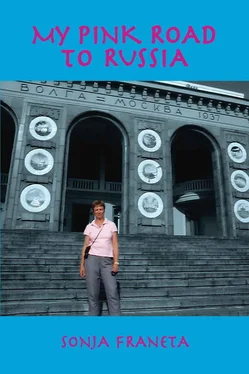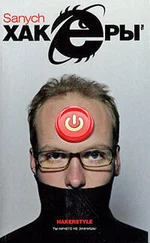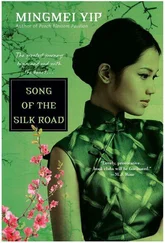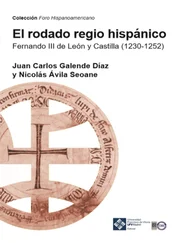I wondered why Lyuba was so drawn to me, an open lesbian from the U.S., who was so indiscreet about herself. When she finished, we were alone in the dubbing booth and she kissed me, taking my tongue without a care that the door might open! I flashed on the tremendous need I had for sex with women in 1977 before I had come out. For months I had been dreaming about women, real sex with women, but I wasn’t in love with anyone in particular. Where did they come from, all those dreams of women who made luscious love? They touched me in places where I’d never been touched, and stayed with me.
At that time I was living in the San Francisco Bay area with my husband. We had a quiet suburban house and I was attending graduate school at U.C. Berkeley. I had heard about meeting places for women-loving women but that was beyond me. Like most of society, I imagined lesbians as a bunch of tough bull dykes with short haircuts and manly swaggers. At the time of my dreams, I had made friends with a gay man at graduate school and sometimes questioned him demurely about his lifestyle, never mentioning anything about my lesbian desires. He was trying to be normal himself at the time. No one wanted to be gay. Who would choose such a lifestyle of furtiveness and exposure to ridicule or worse?
In one of my many conversations with Lyuba about all this, I tried to explain. “The sixties and seventies were such an important, exciting time. I feel fortunate to have lived then, and I was without a doubt shaped by those times. The anti-Vietnam war protests, the civil rights movement, the women’s movement—so much activity, creativity, and education! Everything and everyone was changing so fast. Those songs from the sixties and seventies that are so popular here in Russia—do you understand what Bob Dylan, the Beatles and the Byrds were saying?”
While there had been no real women’s movement in Russia, there was a kind of catching up going on during perestroika in styles and sexual freedom, as well as in curiosity about homosexuality. Women were wanting everything from lipstick and stylish short skirts, to leadership positions. People had affairs no matter what system of government was in place or what movement was going on.
Lyuba told me she had a male lover once, her physician. “It was a passionate affair and nothing more, not something to leave your family over.” No one had to know. Was she going through some other changes because of me and the film festival people in Tomsk?
I asked Lyuba if she could identify as bisexual or lesbian. To her these labels had no meaning. Choosing one sexual identity made absolutely no sense to people who had kept their private lives to themselves and safe from intrusion by the state. Identifying was such a foreign concept, no doubt coupled with fear of being found out and persecuted. One woman I interviewed about her identity even said to me, “Why limit yourself?” In Russia I began to wonder why I was so attached to calling myself a lesbian and how strange this must seem to Lyuba and others.
Lyuba told this startling story in my ear above the din during one of the parties. “I was about twenty-one. I lay next to my friend in bed. She was staying over with me. We had been talking. I fell asleep and I woke to the sensation of her hand stroking my leg. I thought I was mistaken, so I pretended to be asleep. I didn’t know what to do. It was terrifying. Look at what we were living in—people imprisoned for the smallest joke, lives destroyed because someone didn’t like you. I suddenly felt that Stalin was in the room watching me. Stalin! I opened my eyes, and I could see my girlfriend wanting to kiss me. I refused. Are you crazy? I don’t want this, and I don’t want to be in this situation with you ever again.”
I knew about Stalin’s camps. Ten years ago people could still be convicted for hooliganism or even for being unemployed, and there were always psychiatric hospitals for antisocial behavior which included homosexuality. Men were being rounded up for gay sexual acts, and Lyuba had found herself in bed with a lesbian. I could imagine her horror and the specter of Stalin dictating her desires.
Two years earlier while interviewing a woman in St. Petersburg, the girlfriend of a Russian lesbian activist I had known for several years, I asked bluntly, “Are you a lesbian?” The woman looked at me blankly, so I rephrased the question. “How would you identify yourself?” Neither question seemed to make sense to her. After a moment she looked down: “You know, it’s not polite [ nye prinyato ] to ask someone about their private life here.”
In 1991, I had gone with a group of activists and journalists, some of the first from outside Russia, to a Russian prison, the infamous Lubyanka. We wanted to report on the conditions of gays specifically, but we didn’t actually tell the authorities that. I met a man there who said his wife was responsible for his imprisonment. She had snitched on him because she was jealous. She had found out about his gay relationship and reported him in a fit of rage. He ended up spending five years in prison, in the harshest, most degrading conditions. A gay man was the lowest of the low in the Russian prison pecking order.
Lyuba and her husband and daughter live quietly in Tomsk, a region of gulags. I didn’t see her apartment, but I could imagine it—two rooms and a kitchen in a six-story building. A balcony overlooks some trees in a courtyard, the smell of black bread from the store across the yard wafts to their fifth floor window every morning. She lives a safe life with her physicist-husband (we had this in common—my ex-husband was also a physicist). Lyuba does her own weekly review show on television and dubs films. They do not have much money and just get by. They are a family, depending on one another. They have each other. With the unpredictability of the Soviet and now the Russian government, nothing is sure. Safety in relationships becomes that much more important. I began to feel not quite right about having this affair.
One of my favorite Russian poets, Marina Tsvetaeva, beloved in Russia, was bisexual and had several passionate affairs with women in view of her husband. Her poetry is full of longing and incredible rhythms but difficult to translate. When I told Lyuba I believed Tsvetaeva was an important icon and model for lesbians in Russia, she began to seek out all the Tsvetaeva she had never read, “in order to feel closer to you,” she said, “but also for myself.”
One day Lyuba announced, “I was born a big baby. My arm was broken in childbirth by the midwife.” She never wanted to talk about her deformed arm and hid it habitually, offended when I used the word disabled.
“I’m not disabled.” She discreetly moved her arm behind her. Was this an intimation of something more complex and unusual about my beautiful, flirtatious Lyuba?
Having a disability in Russia was a stigma, just as it is everywhere else. I had been working on a USAID-funded wheelchair project in Novosibirsk to help people achieve more independence and I’d learned much about people with disabilities. I didn’t mean to embarrass Lyuba; I was just being open, like I was about sexuality, yet she was offended. Who was I to know what her disability meant to her? I never asked her again. She was the one who told me the following year in a letter that one of her closest friends, a short-statured man had just died. When I called to offer my condolences, she told me he had been a kind of mentor to her and had educated her in surviving social prejudices. Lyuba, married to a Jewish man, knew discrimination on several fronts. She was experienced as a marginalized person and most of her friends were queer.
I thought of Lyuba at odd times back in San Francisco. Years later, I was giving a Russian filmmaker, a straight woman, a guided tour through the gay Castro district. She asked a series of questions that seemed almost rude: “I’m curious—is it a form of protest? I mean…you’ve been with a man, it’s not like it was unbearable, right?” I said no, that it was a desire for women, a desire for a different kind of love, an understanding and depth I felt men didn’t have, that I felt sexual excitement for women. It was strange to these Russian women, not so much that I was without a man but that I didn’t have a child. Such attitudes are socialized, not based on what is natural. Being queer is as normal as being straight.
Читать дальше












